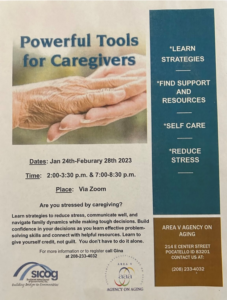Tip – Ask an older family member or friend about their life.
My dad graduated from the University of Utah Medical School in 1946. After looking at different towns in Southeast Idaho, he chose to open his medical practice in Blackfoot. He started the Blackfoot Medical Clinic and for forty years cared for his patients delivering over 6,500 babies. I did the math once—that’s one baby every single day for almost 18 years. Many of my clients tell me, “Your dad delivered me” or “Your dad delivered five of my children.”
One of the best parts of having my law practice in Blackfoot is hearing stories about my dad from people who knew him. Here’s a story one of myclients told me. She was scheduled for a hysterectomy. On the morning of the surgery, she was waiting to go into the operating room when dad came to check on her. As they talked, dad suddenly stopped and seemed to be thinking about something. He then said, “Before we do the surgery, I’m going to have a pregnancy test done.” They did the test, and it came back positive—she was pregnant! The surgery was cancelled, and months later she had a baby boy. Years later, I became that boy’s Scout leader.
Another time, I was having lunch at the Bingham County Senior Center. As I was leaving, a woman saw me and waved me over. I walked to her table, and she said, “I just wanted you to know that your dad could heal you with a hug.”
When dad was 67 years old, he had a stroke that took away his ability to speak. He could only say a few words. He would say things like, “Mind good, can’t talk.” One of my clients told me she was at a basketball game watching her brother play. My dad was sitting next to her at the game. He pointed to her brother, then pointed to himself and said, “Me.” My client realized dad was telling her, “I delivered your brother.” Dad often saw articles in the newspaper about people, and he would point to himself and say, “Me.” I was always impressed by how much he cared about his patients personally. I’ve tried to follow that example in my law practice.
Hearing these stories has helped me understand my dad better. These stories have taught me important things about life. Next time you’re with an older family member or friend, take time to ask them about their life—it will make your life richer.
Tom Packer is an Elder Law Attorney serving all Southeast Idaho. As part of his law practice, Tom offers Life Care Planning to deal with the challenges created by long-term illness, disability and incapacity. If you have a question about a Senior’s legal, financial or healthcare needs, please call us.
December 2025

